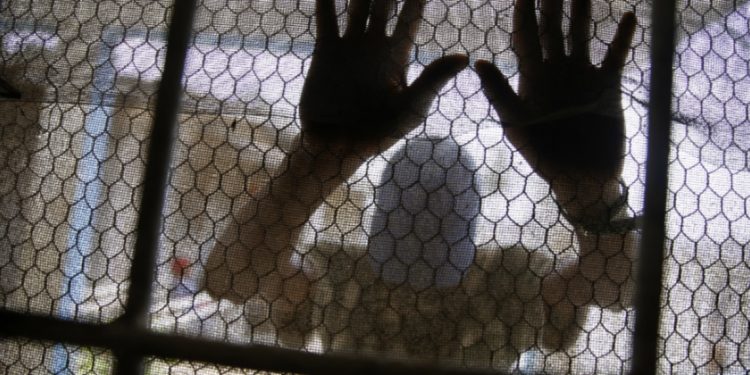BY: PETER ANDREW MUGARURA
The flames of consternation were fanned by our collective despair as we prepared for a lockdown, a disruption that brought life to a shuddering halt.
The lockdown that was part of the measures aimed at stemming the spread of the Coronavirus pandemic that barreled across the country, though well intentioned, had adverse effects on the mental health of Ugandans.
It ushered in a period of emotional breakdown, fuelled an upsurge in the relapse of patients and started a cycle of new cases. With loss of incomes for many during this lockdown, affordability for treatment and rehabilitation became a monumental challenge.
Uganda has 13 regional referral mental health treatment units but since March 2020 the government gazetted these units for the treatment of Covid-19 patients.
It is estimated that 15 per cent of those with mental health disorders who need medical care can’t access it and scores of those afflicted have not been diagnosed though they occasionally display symptoms.
The veil that hides the truth about this condition causes the ailing to be hostage to primordial beliefs such as witchcraft.
Dr. Juliet Nakku, the Deputy Executive Director of Butabika National Referral Mental Hospital says between July 12-18th, the hospital received about 1,050 cases needing admission, yet previously they received between 800 and 900 patients per week, marking an increment of about 300 patients.
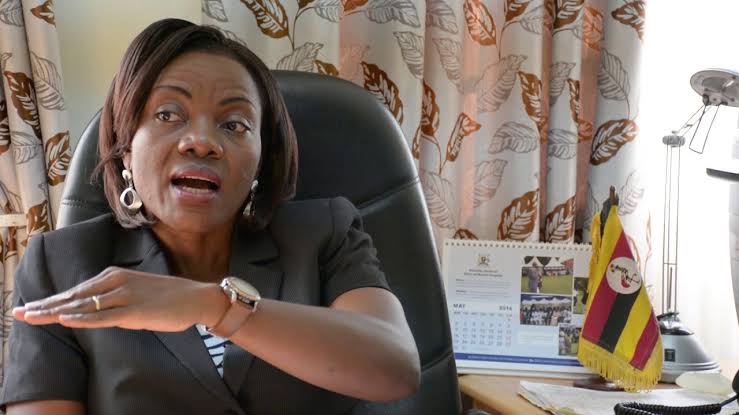
The spike in cases was largely attributed to the emotional, financial distress and restrictions of patient movement to access treatment, counselling and medicine.
Despite Uganda having a high-risk factor and many patients ailing and others not yet diagnosed, mental health services are allocated only one per cent of the annual budgets of the regional referral hospitals.
Bill Bekunda who is a recovery coach at Safe Places Uganda Treatment / Rehabilitation Centre in Kampala reveals that they were overwhelmed by patients barely after the lockdown.
“As soon as private vehicles and movement of people was allowed, the centre was filled to capacity within the first week with clients seeking addiction recovery intensive programs. This according to my assessment was because most families had the time to observe their loved ones and realised the gravity of the problem,” he revealed.
Bekunda says many other treatment and rehabilitation centres have also expressed a rise in the number of those who are affected.
“So, we are seeing a lot of domestic violence, anger, acting out of frustration, suicides and unethical behaviour like incest is on the rise,” revealed Bekunda.
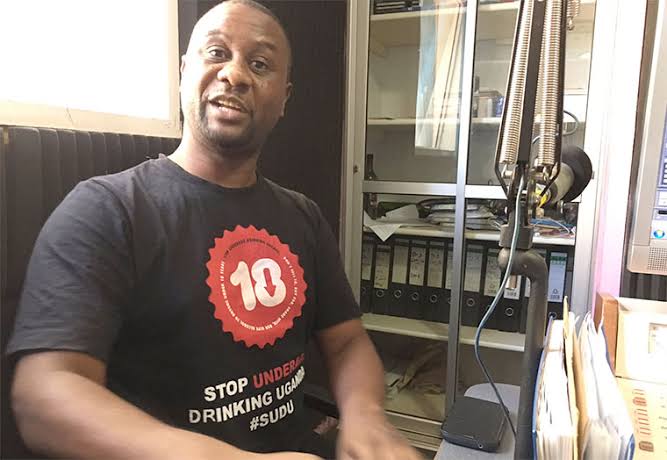
He says there has also been an increase of mental health patients amongst those battling substance use disorders like marijuana, heroin and alcohol after the lockdown was lifted.
“The majority of patients and clients suffering mental health challenges couldn’t access help as they are used to physical interactions with therapists and travelling great distances to receive medication where needed. They had to do without treatment. This led to a high rise of relapse cases,” argued Bekunda.
Bekunda often cycled to meet clients at their homes. “The number of people seeking help online and via phone-calls also increased. I had to offer some of these services for free,” he revealed.
A report by Strong Minds, an organisation dedicated to tackling mental health issues in Uganda and Zambia noted that the pandemic is, “triggering, stress, anxiety and depression largely in low-income households.”
This deduction was after a survey carried out in June 2020, amongst 12,000 women in low-income communities in Uganda and Zambia.
“Nearly a quarter of the women surveyed reported experiencing heightened mental distress due to recent world events, citing increased unemployment, food insecurity, household violence, and substance abuse stemming from the pandemic,” reads part of the report titled, “Covid-19 and Mental Health in Africa.”
Dr. Nakku while appearing before the Public Accounts Committee (PAC) of Parliament recently revealed that they had, “over 1000 people admitted during the lockdown. Butabika is a 550-bed hospital. With public transport curtailed, most of the patients had relapsed, as they had no access to drugs.”
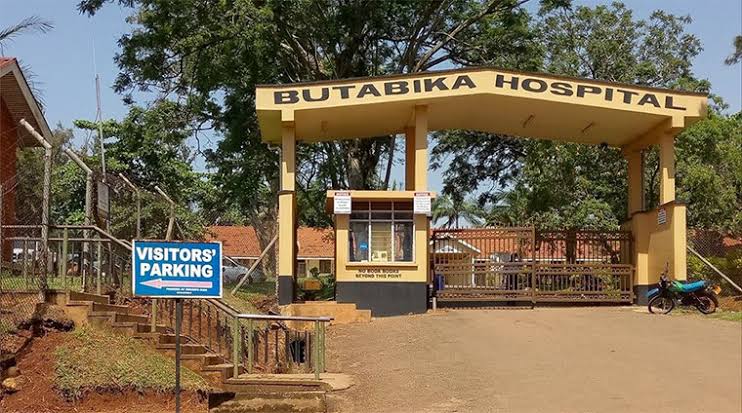
Angella Mugasha is a mental health activist who attests to Butabika Hospital’s efforts to reach out to patients in the midst of the lockdown. “ I observed that Butabika made an effort during the lockdown, I saw one of their field workers going out often on a motor-bike armed with prescriptions for their patients,” she revealed.
Mental health medication is not the type to be placed on the list of affordable drugs with some tablets like Epilim used to control a type of mental health condition called mania, costing over 2,000 shillings.
These drugs are often prescribed to be taken on a daily basis and this was costly and a challenge during the lockdown that rendered a lot of people without a daily source of income to be unable to get this much needed prescription.
Less than 1% of Uganda’s health budget is channeled to this area, yet estimates show that 35% of Ugandans suffer from a mental health disorder.
According to the 2006 WHO-AIMS Report on the Mental Health System in Uganda, primary health care staff received minimal training and therefore are not adequately placed to ably handle patients and only 1% of medical doctors and 4% of nurses are specialised in psychiatry.
The situation is so dire that less than 50 psychiatrists in Uganda are expected to serve a population of 40 million people.
There is little information available for mental health patients to adequately furnish themselves with knowledge on they can access help or how to simply keep mentally healthy.
It is a place where war rages to find good healthcare and services.
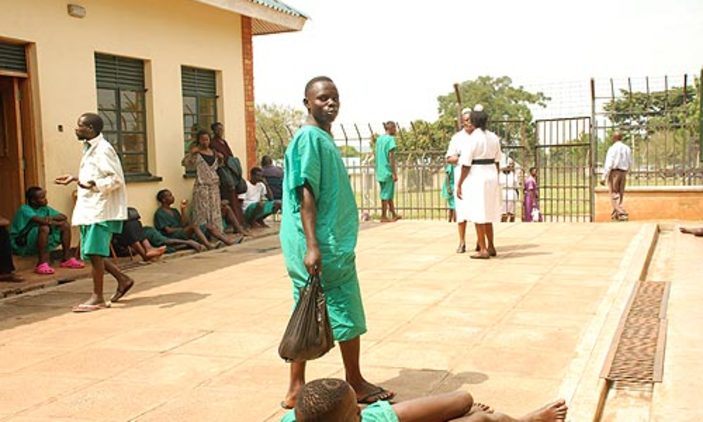
Suzanne Mbabazi has had the misfortune of having to cope with her mental health condition. “Nobody seemed to understand what I was going through, people at home thought I was looking for attention, while medical people didn’t seem so sure of how to handle my condition.”
Spaces, like churches and mosques that offered emotional and social support to mental health patients weighed down by the task of fending for themselves and their families, are out of bounds. The Covid-19 pandemic has cast a shadow on the future and shattered dreams as scores turn to alcohol and substance abuse in a bid to find solace in the midst of their despair. This in turn serves to send them down the rabbit hole of mental ill-health.
Covid-19 sensitisation efforts have upstaged nearly all other endeavours in the health arena and mental health related programs have been relegated to the back pages of the ‘awareness book’.
Uganda as a country has got to wake-up and realise the serious nature of this largely ignored sector of health, young and brilliant minds will be lost to this gradual and silent nemesis that continues to creep into our lives leaving many trapped in a cycle of emotional turmoil.
Abigail Nyende is a mental health activist and she advocates for the provision of opportunity for employees to access mental health specialists provided for by the employers.
“Employers should be able to provide an in-house counsellor or contract certain firms to provide counselling or whichever therapy that is needed,” she says.
Her impassioned pleas are instructive of the massive layoffs by companies that have left many employees on the cliff. In an act of showmanship, many corporate firms in Uganda donated billions of shillings at the behest of the president to the Covid-19 National Task-Force.
Barely after these donations, they sent home hundreds of their employees, in what some would call a travesty of justice.
Uganda’s post-independence history is interspersed with conflict and anarchy. Many mental patients are victims of wars that have claimed the lives of their close relatives. The vortex of turbulence during Idi Amin’s reign of terror, the 1981-1985 National Resistance Army (NRA) guerilla war against the Uganda National Liberation Army (UNLA) that raged in the Luweero Triangle, the Lord’s Resistance Army (LRA) war that started in 1987 and raged on till around 2007 in the greater North and the Allied Democratic Forces (ADF) insurgencies have left thousands of Ugandans afflicted by post-trauma disorders and mental illness. Their dire situation hardly features in the government’s programming for the health sector. Their fate, in short, has been left ‘to whom it may concern’.
Uganda’s looming mental health epidemic
Bekunda says there are ominous dark clouds gathering overhead. “I will not be a prophet of doom in predicting an epidemic of mental health related harm in the near future. The current ongoing happenings of violence and discord during and after the National Resistance Movement (NRM) election primaries to me, is an indicator of the increasing intolerance related to increase in mental health challenges.”
Organisations like Strong Minds Uganda do offer free professional counselling and mental health treatment and have set up a hotline that allows people with mental health related conditions to dial in and they will immediately call back for a treatment or counselling session.
This is not adequate as the Covid-19 pandemic has left a gaping hole in the country’s ability to offer holistic services to those ailing with mental health challenges.
For now, there is no sliver of hope for thousands chained to the shackles of mental health bondage.


